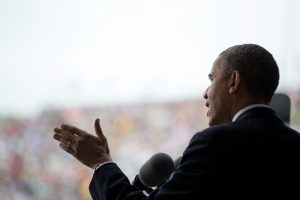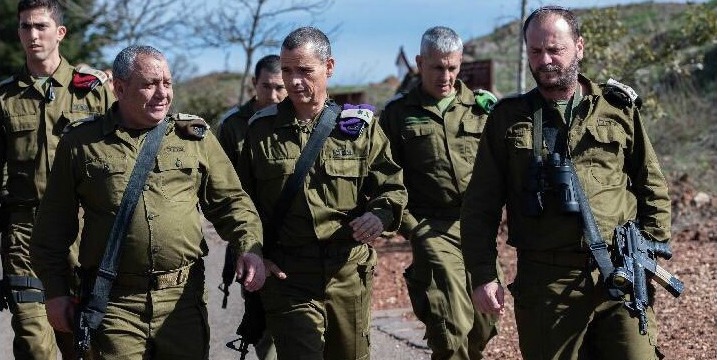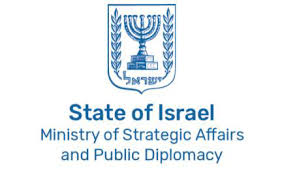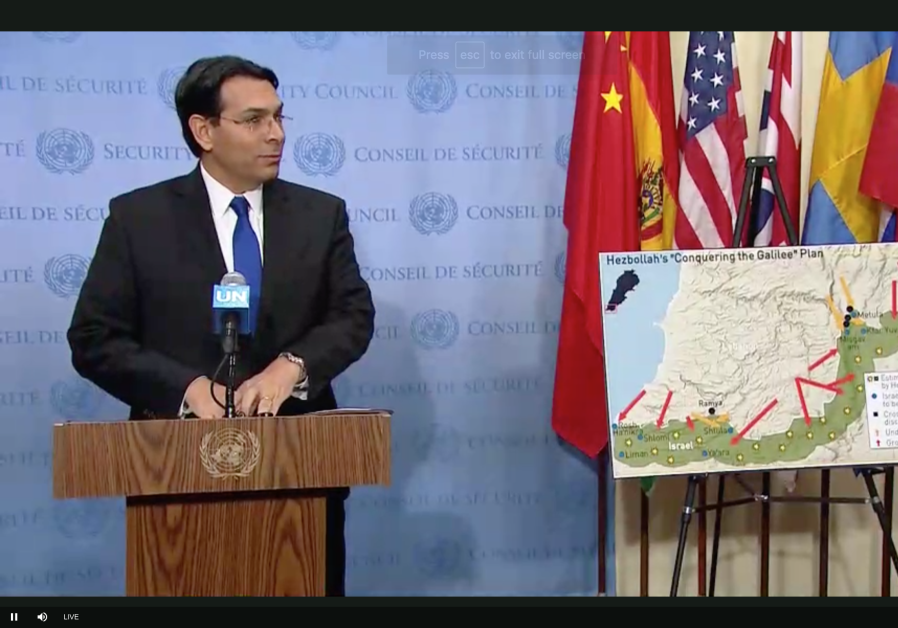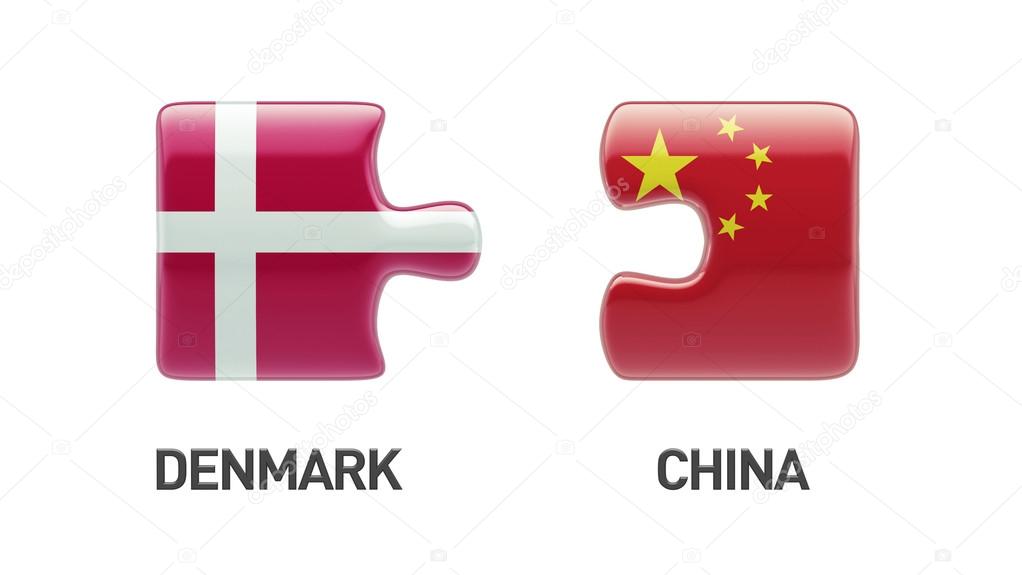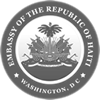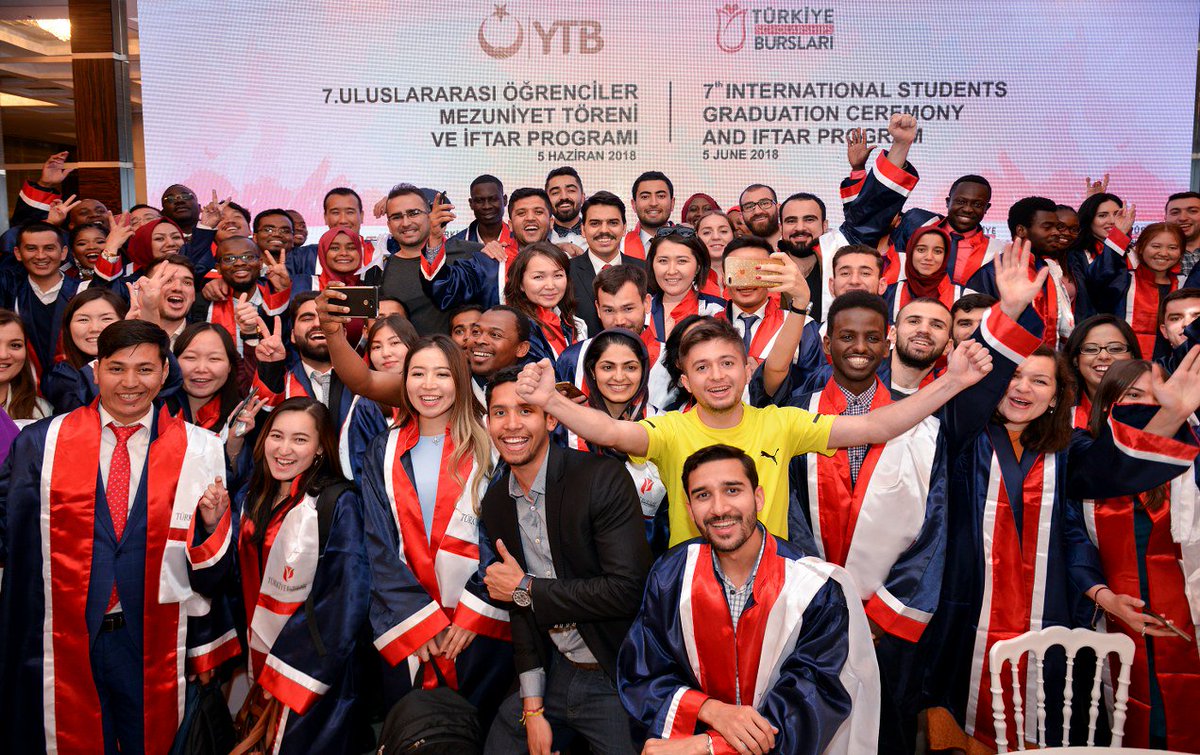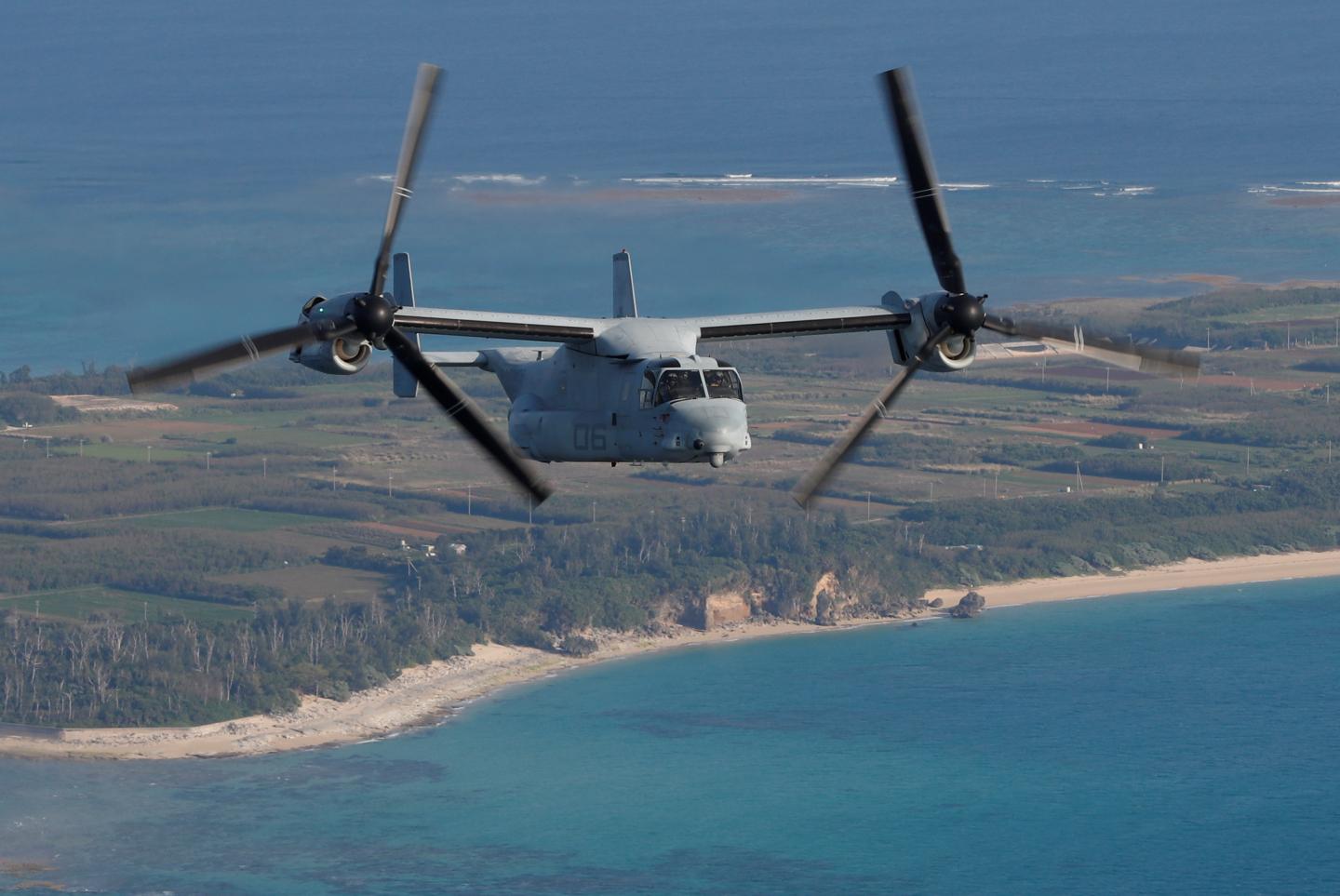A One-Time Opportunity for Israel in the Golan?
Michael Oren, algemeiner.com; see also
Image from article: IDF Chief of Staff Lt. Gen. Gadi Eizenkot (front left) visits Israel’s border with Syria in the Golan Heights, Nov. 20, 2018. Photo: IDF Twitter account.
JNS.org – Donald Trump’s decision to withdraw American troops from Syria shocked many in the United States and the Middle East.
In Israel, most of the public discourse about this decision revolves around the challenges of this process, but we seem to be largely ignoring the question of what opportunities it may present: For one, could Israel, as compensation, secure a pledge from Washington to help it in times of war and on other vital diplomatic issues?
Given the recent discovery of Hezbollah’s grid of terror tunnels and Iran’s attempts to upgrade its offensive capabilities, it is reasonable to assume that Israel is closer than it has ever been in the last decade to a war in the northern sector. This could prove highly complex from a military standpoint and eve..
Israel Uses Canary Mission Blacklist Info To Bar Activists
Noa Landau (Haaretz), forward.com/news
image (not from article) fromExcerpt:
Israel’s Strategic Affairs and Public Diplomacy [JB emphasis] Ministry is using information from the controversial right-wing website Canary Mission, to bar political activists from entering the country, according to documents obtained by Haaretz.
The internal documents, some of which were submitted to the appeals tribunal in the appeal against the deportation of American student Lara Alqasem, show that officials briefly interviewed Alqasem, 22, at Ben-Gurion International Airport on her arrival Tuesday night, then passed her name on for “continued handling” by the ministry because of “suspicion of boycott activity.” Israel recently passed a law banning the entry of foreign nationals who engage in such activity. ...
Media Power
“Why isn’t there a coordinated orchestra with the IDF contributing rather than leading the effort?”
Editorial, The Jerusalem Post,December 22
Image from article: Danny Danon [see] with a map of Hezbollah tunnels in front of the UN Security Council, December 19th, 2018. (photo credit: screenshot)
Last week, ahead of a UN Security Council debate on the Hezbollah attack tunnels Israel has discovered along the northern border, the IDF launched a media campaign and public diplomacy [JB emphasis] blitz to shake up the world.
CNN was given an exclusive story. Its reporter was brought to one of the tunnels and allowed to drop a camera inside to take never-seen-before footage. One of the officers in the IDF Spokesperson’s Office put out a video in English calling on Lebanon to take action to reign in Hezbollah and prevent another war.
It was a nice attempt but ultimately it did not succeed.
The Security Council met on Wednesday and failed to issue an unequivocal condemnation of Hezbollah or Leb..
Central Tibetan Administration: Diplomacy with Chinese characteristics: The case of Denmark
tibet.net
image (not from article) from
Andreas Bøje Forsby, The Asia Dialogue, December 18, 2018When in June 2012 China’s President Hu Jintao made a first-ever official Chinese state visit to Denmark, Chinese diplomats put strong pressure on the Danish government ahead of the planned visit. Their main concern? That Hu would be confronted with any activists or manifestations critical of China. The message was somehow transmitted all the way to the patrolling Danish police forces, who systematically prevented peaceful pro-Tibet demonstrators from exercising their constitutionally guaranteed right to freedom of speech when Hu’s motorcade toured the streets of Copenhagen.Last year, an official investigatory commission – the Tibet Commission – stated in a reportthat the activities by the Danish police amounted to a constitutional breach, which was largely orchestrated by commanding police officers. However, citing the emergence of ‘new evidence’, the Tibet Commission has recently been task..
Embassy Hosts its Second Annual Holiday Pop-Up Shop | In Case You Missed It…
haiti.org
This past weekend, the Haitian Embassy in Washington DC hosted its second annual “Holidays at the Pearl” Pop-Up Shop. This initiative is part of the Embassy’s larger public diplomacy efforts to offer the Washington metropolitan community an opportunity to experience everything Haiti has to offer. The pop-up shop initiative focuses mainly on efforts to promote and rebuild Haiti through entrepreneurship.For the occasion, the Embassy was transformed into a holiday winter wonderland and a luxurious Haitian marketplace where entrepreneurs who are contributing to the reclaiming of Haiti’s title as the Pearl of the Antilles displayed their collection of products sourced and/or inspired by Haiti. Available products included home goods, clothing, fashion accessories, and gourmet food products.Different from the Embassy’s previous pop-up shops, this year’s edition featured a happy hour uniquely curated for the occasion and sponsored by Toast Vodka and Chef Don Berto from Port-au-Princ..
Finish of America’s honeymoon with MBS?
[JB note: Hard to tell from original article who's the author of this piece: Denis Bedoya or Senem Cevik], infosurhoy.com
image (not from article) from, with note: HONEYMOON BLISS Valid through December 31, 2018 Starting at SAR2,000++ per night*
Whether or not the senate awakening was motivated to defy President Trump and to rebuke Trump administration for its ties with the KSA, this time the pressure on Saudi Arabia is for real
CALIFORNIAFor the Kingdom of Saudi Arabia (KSA), public diplomacy [JB emphasis] has always been at the forefront of its foreign affairs. The Wahhabi and Salafi clergy in the KSA have been spreading their interpretation of Islam for decades through a campaign throughout predominantly Muslim nations. Saudi soft power is connected to the Saudi interpretation of Islam and efforts to export the Wahhabi ideology across the globe. As a result, the KSA’s religious diplomacy pits itself against all other interpretations of Islam and other efforts to export religio..
Türkiye Scholarships and the Scope of Turkish Diplomacy
By Murat Kazancı, thenewturkey.org
Türkiye Scholarships will eventually become the most important diplomacy tool of Turkey to widen its scope of influence and soft power in countries that it attracts students from.
Image from article: 7th international students graduation ceremony and iftar program, 5 June 2018.
Türkiye Scholarships is a publicly funded scholarship program, which can be deemed as the equivalent of government-sponsored scholarships in the U.S., UK, and Australia. Systematic grants provided by Turkey’s publicly funded scholarships to international students dates back to 1992. Although a limited number of international students were able to receive scholarships due to bilateral agreements, the first initiative to have a set strategy and program was the Grand Student Project of 1992.
More concrete steps began to be taken with the efficient implementation of the scholarship program, which began to expand from Turkic republics to other regions. With the establishment of the..
Improving the U.S.-Japan Alliance Begins on Okinawa
The United States must work to thoroughly address the concerns Okinawans have with its presence on the island.
Matthew Reisener, nationalinterest.org
uncaptioned image from article
Excerpt:
While America has far too many military bases which have become redundant, costly and counterproductive to America’s national interests, the bases in Okinawa remain a vital component of America’s grand strategy in East Asia. The American military presence on the island, and specifically U.S. Marines, play an important role in establishing American power projection in a critically important region that is home to roughly 60 percent of the global population. Still, in the interest of preserving the long-term sustainability of the American presence in Okinawa, the United States should work with the local government to better address the valid complaints of the Japanese people regarding the role of the American military in Okinawa. ...
America’s bases in Okinawa remain extremely important to its securit..
Mapping museum ‘Soft Power’: Adding geo-visualization to the methodological framework
Natalia GrinchevaDigital Scholarship in the Humanities, fqy072, https://doi.org/10.1093/llc/fqy072Published: 24 December 2018Cite Permissions Share AbstractThe article proposes, justifies, and tests a new methodological framework to measure museum ‘soft power’ by employing geo-visualization as a new method empowered by the rapid development of digital humanities. This research not only demystifies the buzz term of ‘soft power’ that is frequently applied in relation to contemporary museums and their international cultural engagements but also develops an evaluation framework to assess museum capacities to exert global impacts. Specifically, the article draws on the academic scholarship outlining a plethora of approaches for ‘soft power’ evaluation, including Resources, Outputs, Perceptions, and Networks evaluation models. It argues for a new integrative approach that can comprehensively combine different methods to construct a more advanced tool to measure museum ‘soft power’. The artic..
A Message to Public Diplomacy Press Review E-mail subscribers …
PD Friends, Romans, Countrymen, Lend me Your Ears:
You may have noticed that the Public Diplomacy Press and Blog Review (PDPR) "top" three items sent to you via email almost daily in the late afternoon US Eastern Time (please note: transmitted in news-as-it becomes available, not necessarily in headlines-important order) are often in the wrong format, e.g., "I can't [expletive omitted] find an entire sentence on my computer screen.")
To avoid this irritation, please click, at the bottom of the PDPBR
email message, "View entire message":
[Message clipped] View entire message
That might spare you of irritation (for now) -- I hope. Best, john
P.S. For full, well-formatted (most of the time, I hope) current and archival reports on PD items, please refer to the Public Diplomacy Press and Blog Review Blog homepage.



